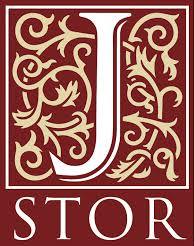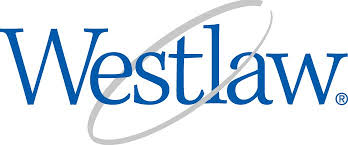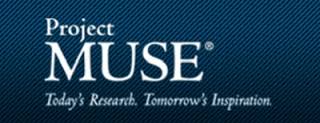CYBER LIBRARY
State of the art Cyber Library, a 24 X 7 facility is located on the first floor. This has provision of over 92 workstations and study places, where users will have desk with ample reading space and also a PC with internet access. These study places provide seamless access to print as well as digital learning resources of the library.
Printing : Two Heavy Duty Printers are located in the Cyber Library. The printing is monitored by Computer Center. Please approach Computer Centre once your refill of printing is over to get it recharged.
Cyber Library: Help us to Manage this facility better
-
Do Not Connect Your Mobile or any external device to Computers.
-
Do Not Install Any Software Without Prior Permission Of IT Team.
-
Do Not Download Movies OR Songs.
-
Do Not Remove LAN Cord, Keyboard And Mouse From The Computers.
-
Do Not Save Any Document On The Desktop.
-
Keep Your Mobile On Silent Mode.
-
Eatables are not allowed inside the Cyber Library.
-
Take Care Of Your Own Belongings.
-
Turn Off The Computer After Your Work Is Completed.
-
All Drives Will Be Formatted every 15 Days by IT team Without Any Intimation.
-
IT Team Will Not be Responsible For Any Data Loss
-
Kindly Co-operate With IT Team For Minimum Downtime Of The Computers.
-
Please Inform To IT Team In Case Of Any Computers Problem.
-
Please Keep The Cyber Library Clean.
-
Keep Silence In Cyber Library.
Licenses and Fair Use of e-Resources:
The INFLIBNET Consortium and TISS subscribe to 10,298 electronic journals including full-text electronic resources and bibliographic databases. All such eResources are governed by license agreements. The terms and conditions for using these resources are spellt out in license agreements that are signed with each publisher by the INFLIBNET Consortium and TISS.
The licenses for electronic resources impose two types of restrictions on its usage, namely i) who can use these resources; and ii) how the resources can be used. The first restriction defines authorized users for e-resources, which generally includes students, faculty, staff and onsite visitors of a subscribing institution. The second restriction deals with how these resources can be used. It is the responsibility of individual users to ensure that e-resources are used in a fair and just manner and for personal, educational and research purposes only.
Computer Access-Acceptable Use and Code of Conduct:
Only registered members of the library are authorized to use the Computers, Internet facility or to access e-Resources. Prior to such authorization, the students must sign and return the Library Registration Form acknowledging their responsibilities and the consequences of violation.
Students are expected to observe network etiquette by being polite. Students are prohibited from pretending to be someone else; transmitting obscene messages or pictures; revealing personal addresses or telephone numbers-either their own or another person's; or using the network in a way that would disrupt use by others.
The following policy for acceptable use of computers, networks, and system resources, including the Internet and e-resources, shall apply to all using Cyber Library. All technology equipment shall be used under the supervision of the site administrator. Any user who violates any condition of this policy is subject to disciplinary action or administrative sanctions. In addition to any other disciplinary action taken, the IT Department reserves the right to terminate access to system resources for any user who violates these guidelines.
-
Every user in whose name a system account is issued will be responsible at all times for its proper use.
-
Users shall not let other persons use their name, login, password, or files for any reason
-
Users shall not use others' system accounts or try to discover another user's password.
-
Users shall not erase, rename, or make unusable anyone else's computer files, programs or disks.
-
Users shall not use Computers for any non-instructional or non-administrative purpose, including, instant messaging, online shopping, or personal use of streaming media such as online radio stations or video broadcasts.
-
Users may not install, download, copy, or distribute copyrighted materials such as software, audio or video, files, graphics, and text without the written permission of the administrator.
-
Users shall not use the Computers for illegal purposes, in support of illegal activities, or for any other activity prohibited.
-
Users shall not write, produce, generate, copy, propagate, or attempt to introduce any computer code designed to self-replicate, damage, or otherwise hinder the performance of any computer's memory, file system, or software. Such software is often called a bug, virus, worm, Trojan Horse, or other name.
-
Users shall not use Computers to purposefully distribute, create, or copy messages or materials that are abusive, obscene, sexually oriented, threatening, harassing, damaging to another's reputation, or illegal.
-
Users shall not use Computers to purposefully access materials that are abusive, obscene, sexually oriented, threatening, harassing, damaging to another's reputation, or illegal. In the event that accidental access to prohibited materials occurs, users are expected to immediately discontinue such access and report the incident either to Library staff or to the administrator.
-
Users shall not intentionally damage the system, damage information belonging to others, misuse system resources, or allow others to misuse system resources.
-
Users shall not alter or vandalize computers, networks, printers, or other associated equipment and system resources. Alteration or vandalism includes, but is not limited to: removal of parts, intentional destruction of equipment, altering system settings or software, installing unauthorized or unlicensed software or programs, attempting to degrade or disrupt system performance, or attempting to make system resources unusable.
-
Users shall not use Computers for the forgery or attempted forgery of email messages. Attempts to read, delete, copy, or modify the email of other system users, deliberate interference with the ability of other users to send/receive email, or the use of another person's email account is prohibited.
-
Users should not use library network for sending and receiving a large number of personal messages, including using group email distribution lists to send non-administrative or non-instructional messages to other users.















